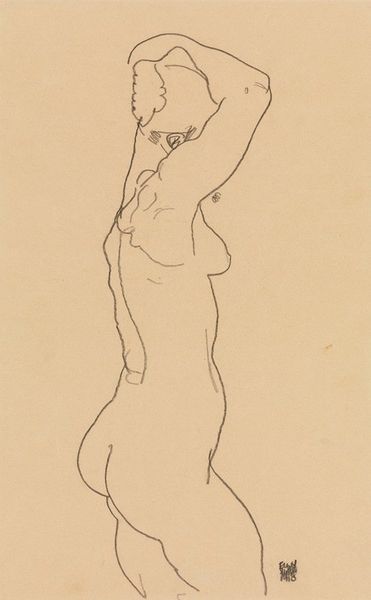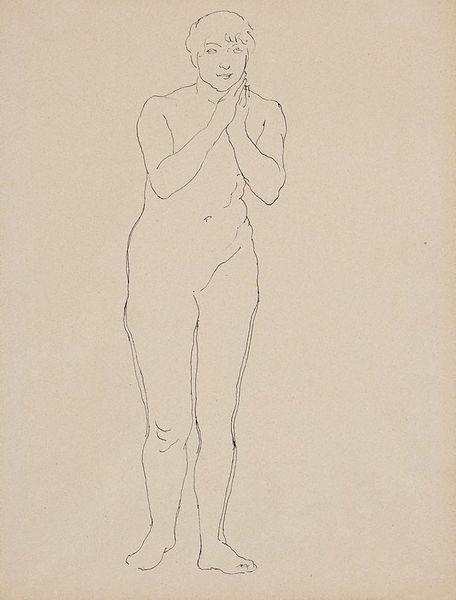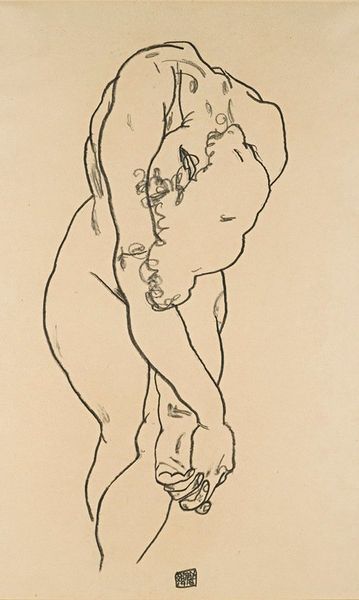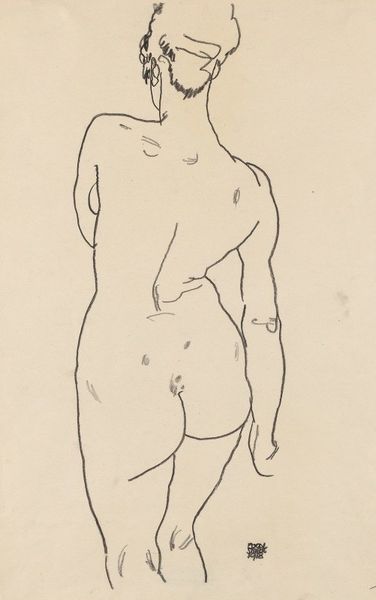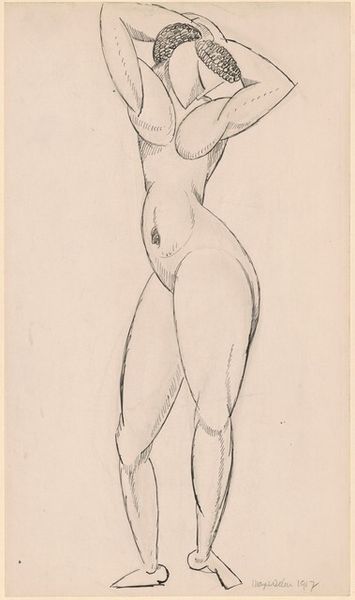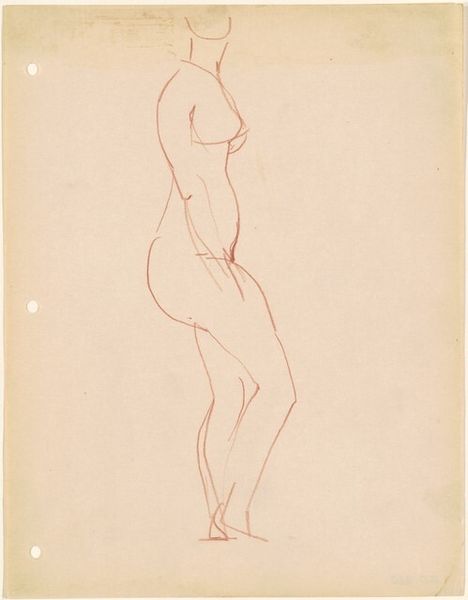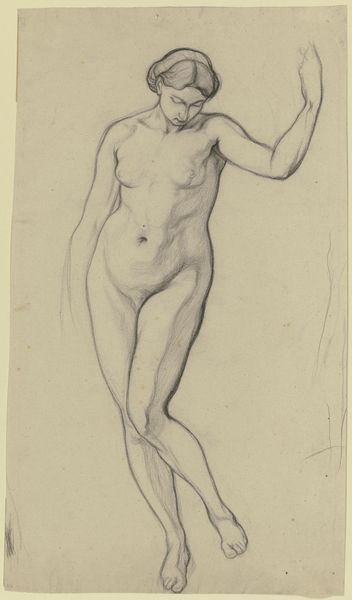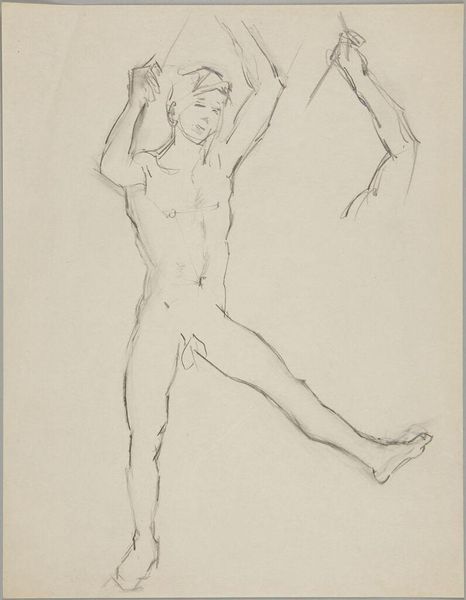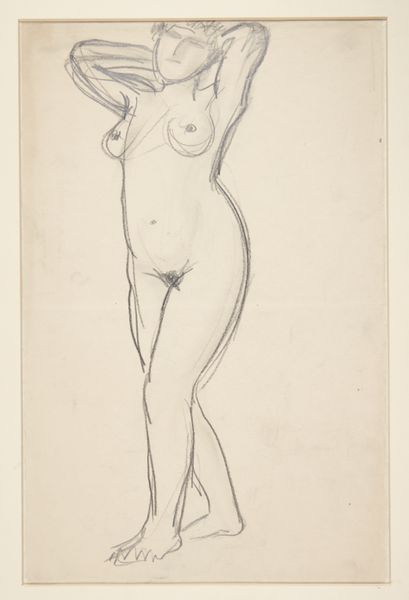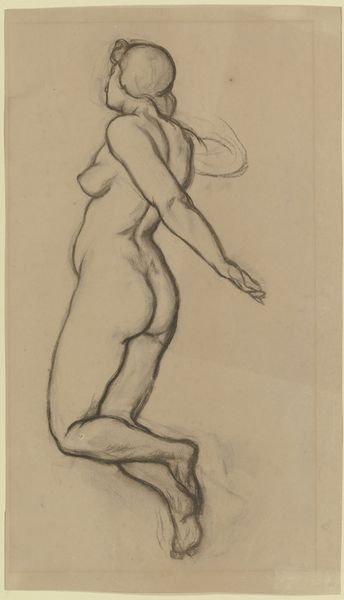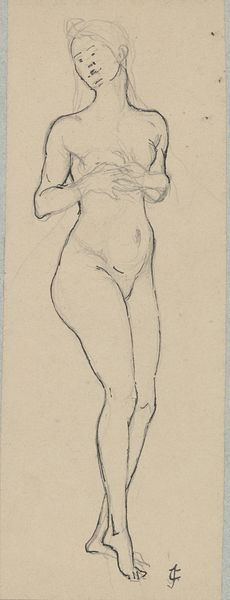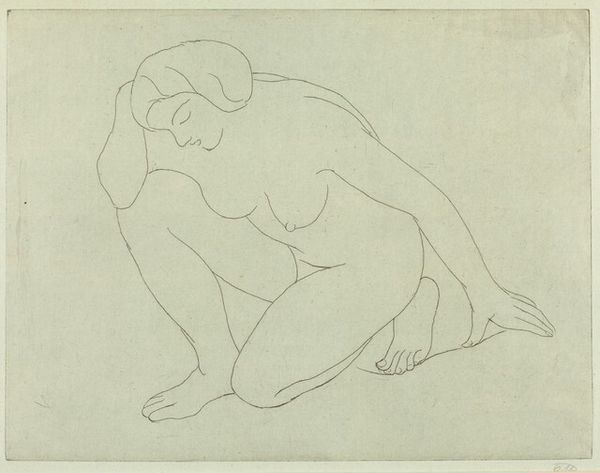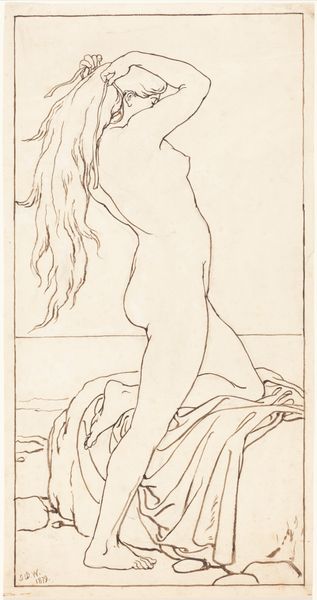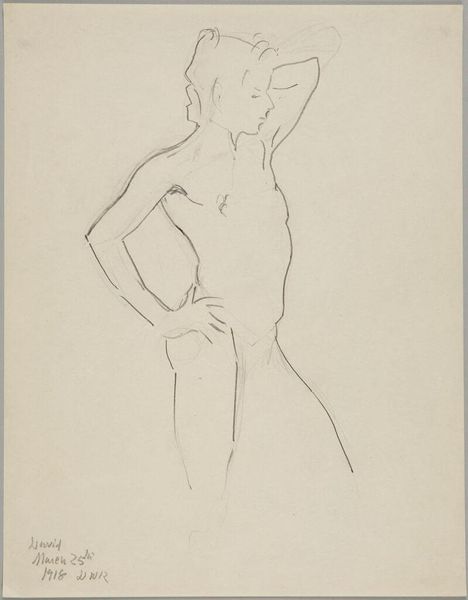
drawing
#
portrait
#
drawing
#
expressionism
#
nude
Copyright: Public Domain: Artvee
Curator: Just looking at this piece by Egon Schiele from 1918— "Standing Nude Girl, Facing Left"—it gives me the shivers. So raw. The contour lines, all nerve endings, the way the ink bleeds a bit… it's viscerally affecting, wouldn't you say? Editor: Absolutely, and the way those raw nerves mirror so much social tension from the period. Schiele was working within a society grappling with massive political shifts, immense anxieties concerning gender and sexuality norms, as well as public health matters, so for me this piece—made during the final year of the Great War— speaks to an attempt to reclaim autonomy over the body amid societal anxieties. Curator: Yes! And there’s something so unflinching about his gaze. Almost clinical, you might say? I am thinking here of some artists’ focus on the truth of the figure versus some sort of beautified version. Editor: In reclaiming a vision of truth that has gone too far in the clinical direction, some might suggest. Schiele often explored themes of sexuality, alienation, and mortality, sometimes resulting in controversy surrounding his works. His drawings, which mostly focus on marginalized bodies, are, however, relevant when considering issues of public health crises that can take disproportionate tolls on vulnerable individuals. Curator: Right. Her pose, the slight curve of her spine. I imagine she feels vulnerable, too—like she wants to shrink away somehow. Is it intimacy, exhibition, or alienation we feel as viewers? Or all three, jumbled up like messy bedsheets after… well, you know. The suggestive nature of art back then! Editor: I’m intrigued by the drawing's use of line, too, the thin dark lines suggesting a fragility. When coupled with what appears to be a rather unromantic or conventional depiction of female form—what meaning should be derived here? What is she "asking" us to witness, if anything at all? I can also read into that sense of alienation an expression of trauma— perhaps not individual but collective, as experienced through the lens of her own life. Curator: A beautiful drawing. And yes, I believe she is asking us, still. Editor: Art compels us to see and question—and Schiele's ability to leave viewers thinking is why we study these works today.
Comments
No comments
Be the first to comment and join the conversation on the ultimate creative platform.
